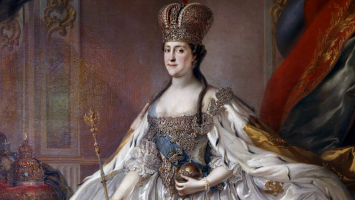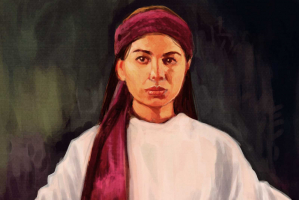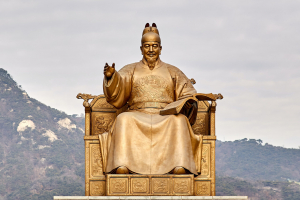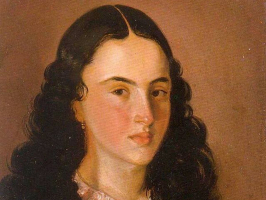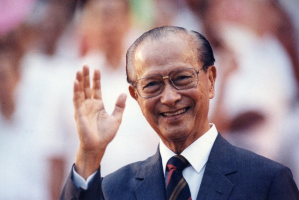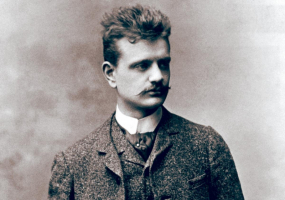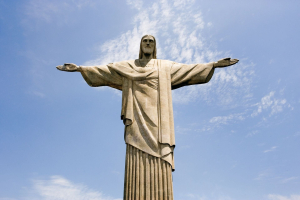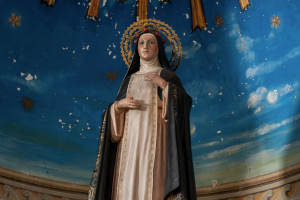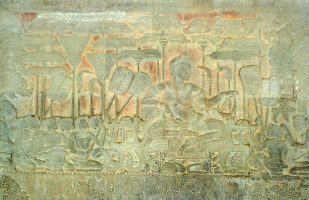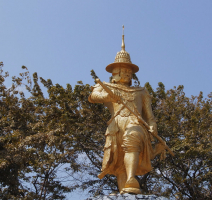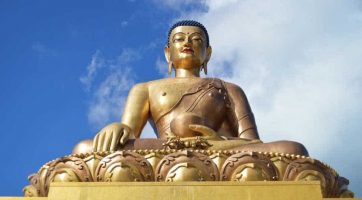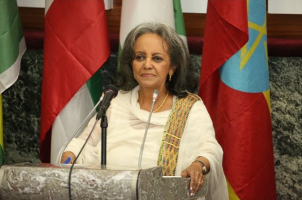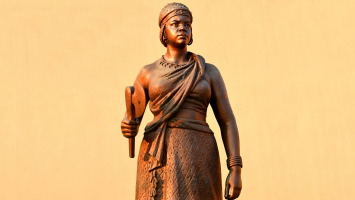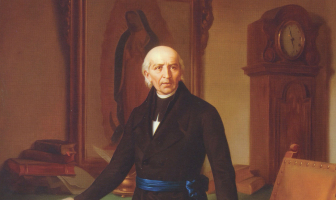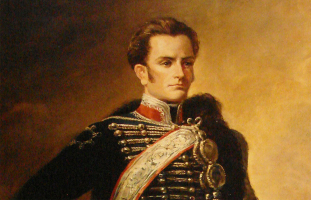Top 10 Most Important Historical Figures In Indonesia
Here is a list of the most important historical figures in Indonesia. Are you curious if any Indonesians made our list of the most famous historical people? To ... read more...find out, read the article.
-
Mohammad Hatta (August 12, 1902 - March 14, 1980) was an Indonesian statesman and nationalist who served as the country's first vice president. Known as "The Proclamator," he and a group of Indonesians, including the country's first president, Soekarno, fought for Indonesia's independence from the Dutch. She is remembered as one of the most important historical figures in Indonesia.
Hatta was born in the Dutch East Indies town of Fort de Kock (now Bukittinggi, Indonesia). Following his primary education, he attended Dutch schools in the Dutch East Indies and later studied in the Netherlands from 1921 to 1932.
Hatta was appointed as Indonesia's first vice president by the PPKI on August 18, 1945, to accompany Sukarno, who had been elected as the country's first president. Hatta would make three critical decisions in the early days of the republic. Hatta issued an edict on October 16th conferring legislative powers on the Central National Committee of Indonesia (KNIP), in addition to its advisory role to the president. Hatta also authorized the formation of political parties in Indonesia in the same month. The following month, in November, Hatta made the decision to delegate the president's role as Head of Government to a prime minister. Hatta was able to make these critical decisions because Sukarno was unable to attend the relevant meetings, leaving Hatta in command. Sukarno, for his part, did not appear to disagree with Hatta's decisions, at least not during the War of Independence.
Soekarno-Hatta International Airport bears his name. Hatta was honored with the naming of a dormitory building for international students on the Erasmus University Rotterdam campus in 2014.
Birthdate: August 12, 1902
Died: March 14, 1980
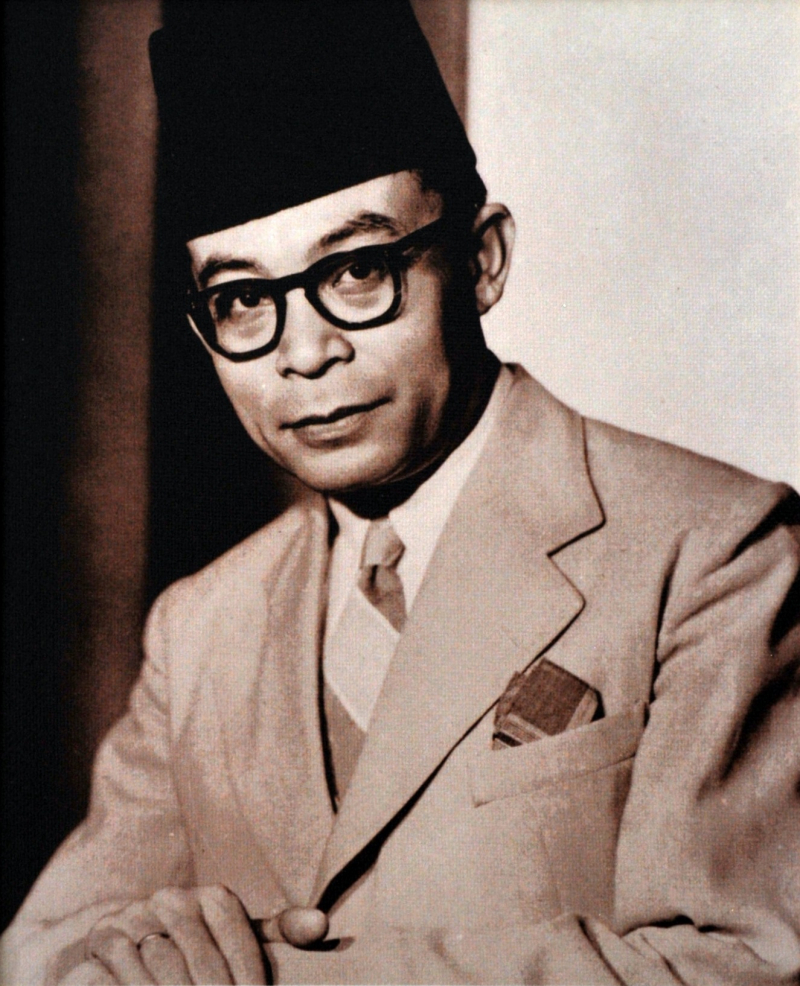
vi.wikipedia.org 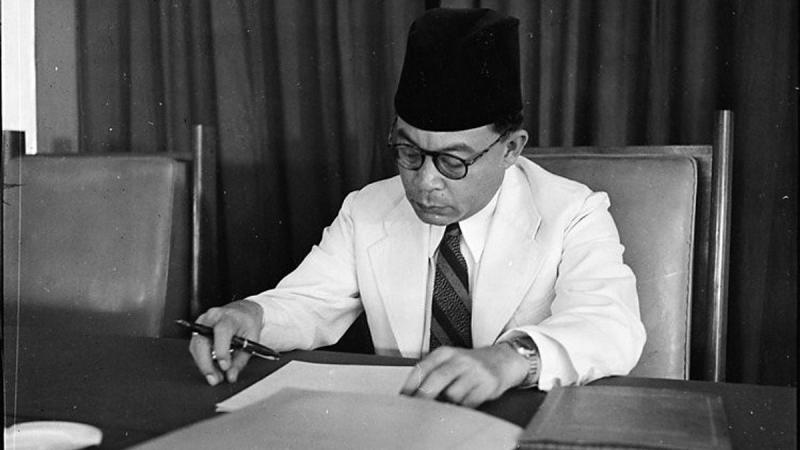
voi.id -
Sukarno (6 June 1901 - 21 June 1970) was an Indonesian politician. He was the first president of Indonesia, serving from 1945 to 1967. He was an Indonesian statesman, orator, revolutionary, and nationalist.
Sukarno led the Indonesian independence movement against the Dutch colonialists. During the colonial period, he was a prominent leader of Indonesia's nationalist movement, and he spent over a decade in Dutch detention before being released by invading Japanese forces in World War II. Sukarno and his fellow nationalists worked together to gain public support for Japan's war effort in exchange for Japanese assistance in spreading nationalist ideas. Sukarno and Mohammad Hatta declared Indonesian independence on August 17, 1945, following the surrender of the Japanese, and Sukarno was appointed president. He led the Indonesian diplomatic and military resistance to Dutch re-colonisation efforts until the Dutch recognized Indonesian independence in 1949. "Sukarno was the only Asian leader of the modern era able to unite people of such disparate ethnic, cultural, and religious backgrounds without shedding a drop of blood," author Pramoedya Ananta Toer once wrote.
Sukarno established an autocratic system called "Guided Democracy" in 1959 after a chaotic period of parliamentary democracy that successfully ended the instability and rebellions that were threatening the survival of the diverse and fractious country. Sukarno launched a series of aggressive foreign policies under the banner of anti-imperialism in the early 1960s, and he personally championed the Non-Aligned Movement. These developments resulted in increased tensions with the West and closer ties with the USSR. Following the events of the 30 September Movement in 1965, military general Suharto took control of the country in a Western-backed military takeover of the Sukarno-led government. This was followed by repression of real and perceived leftists, including executions of Communist party members and suspected sympathisers in several massacres carried out with the assistance of the CIA and British intelligence services, resulting in an estimated 500,000 to over 1,000,000 deaths. Suharto officially took over the presidency in 1967, succeeding Sukarno, who remained under house arrest until his death in 1970.
Birthdate: June 6, 1901
Died: June 21, 1970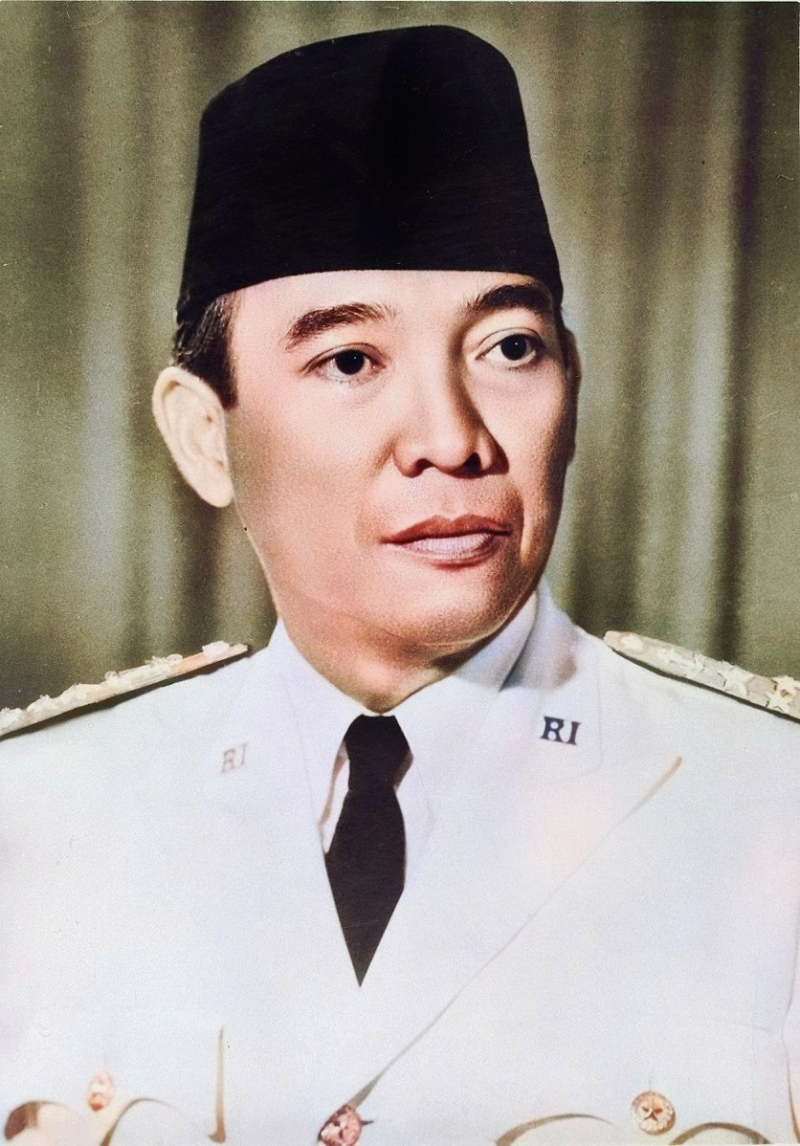
vi.wikipedia.org 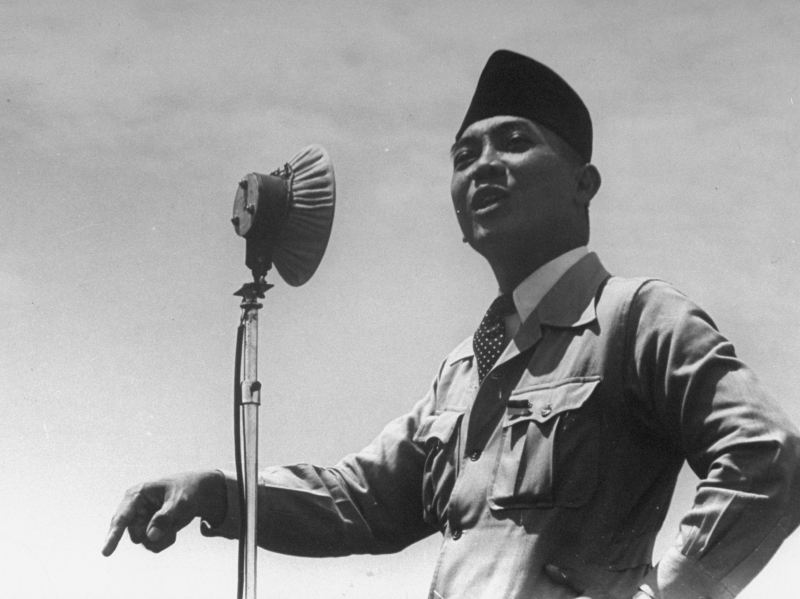
thoughtco.com -
Suharto (June 8, 1921 - January 27, 2008) was an Indonesian army officer and politician who served as the country's second and longest-serving president. Among the most important historical figures in Indonesia, Suharto, widely regarded as a military dictator by international observers, ruled Indonesia for 31 years, from the fall of Sukarno in 1967 until his own resignation in 1998. His 31-year rule and US$38 billion net worth are still being debated at home and abroad.
Suharto was born during the Dutch colonial era in the small village of Kemusuk, in the Godean area near the city of Yogyakarta. He grew up in a low-income family. His Javanese Muslim parents divorced not long after his birth, and he spent much of his childhood with foster parents. Suharto served in the Japanese-organized Indonesian security forces during the Japanese occupation. He joined the newly formed Indonesian Army during the country's independence struggle. Suharto rose to the rank of Major General there after Indonesia gained full independence.
Suharto-led troops foiled a coup attempt on September 30 and October 1, 1965. According to the army's official history, the Communist Party of Indonesia supported this attempt (PKI). Suharto seized power from Indonesia's founding president, Sukarno, after the army led a nationwide violent anti-communist purge. In 1967, he was appointed acting president and was elected president the following year. He then launched a "de-Sukarnoization" social campaign to lessen the former president's influence. Throughout the 1970s and 1980s, there was widespread support for Suharto's presidency. The New Order's growing authoritarianism and widespread corruption by the 1990s were a source of discontent, and he resigned in May 1998, following the 1997 Asian financial crisis, which caused widespread unrest. Suharto died in January 2008, and a state funeral was held for him.
Suharto established a strong, centralized, and military-dominated government during his "New Order" administration. What began as an oligarchic military dictatorship became a personalistic authoritarian regime centered on Suharto. During the Cold War, he received economic and diplomatic support from the West for his ability to maintain stability over a vast and diverse Indonesia, as well as his avowed anti-communist stance. For the majority of his presidency, Indonesia saw significant industrialization, economic growth, and higher levels of educational attainment. The Indonesian government is considering awarding Suharto the title of National Hero, which has sparked heated debate in the country. Transparency International claims that Suharto was one of the most corrupt leaders in modern history, embezzling an estimated $15-35 billion during his reign.
Birthdate: June 8, 1921
Died: January 27, 2008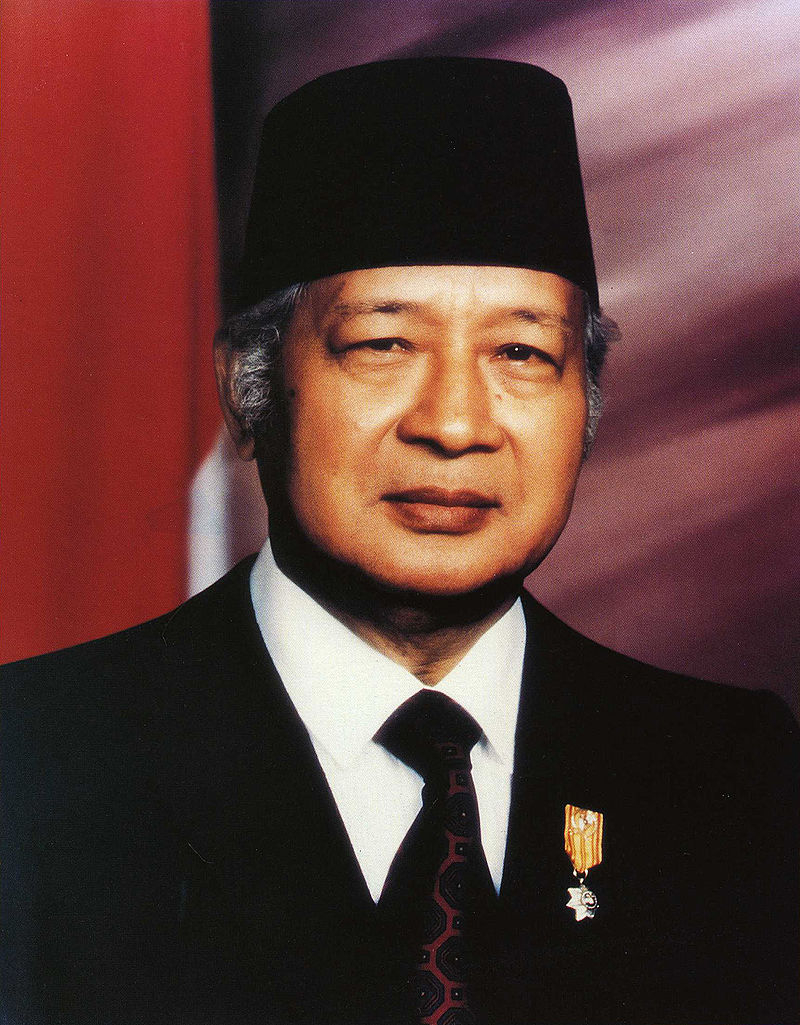
vi.wikipedia.org 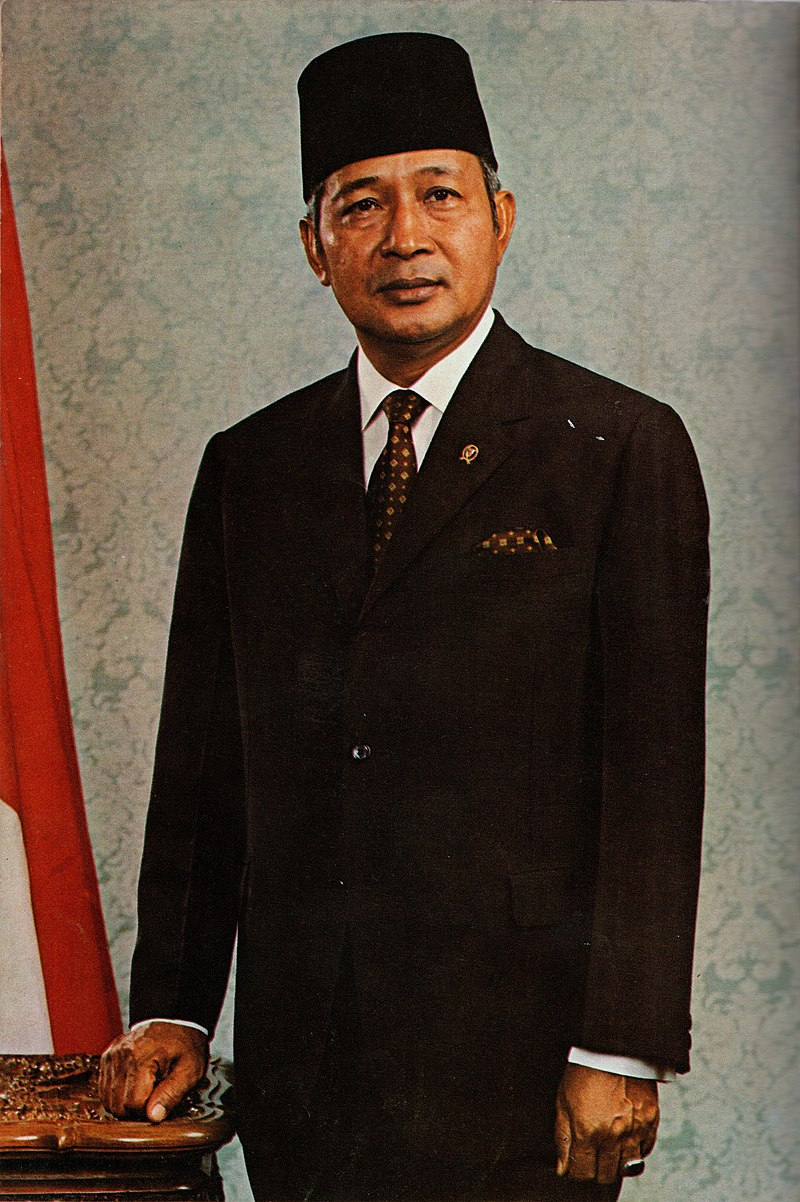
commons.wikimedia.org -
Gajah Mada (c. 1290 - c. 1364), also known as Jirnnodhara, was a powerful military leader and Mahapatih (the approximate equivalent of a modern Prime Minister) of the Javanese empire of Majapahit during the 14th century, according to Old Javanese manuscripts, poems, and inscriptions. He is credited with restoring the empire to its former glory.
He took the Sumpah Palapa oath, in which he vowed to live an ascetic lifestyle (by not eating spicy foods) until he had conquered the entire Southeast Asian archipelago of Nusantara for Majapahit. During his reign, the Hindu epics, such as the Ramayana and the Mahabharata, became deeply embedded in Javanese culture and worldview through the performing arts of wayang kulit ("leather puppets"). In modern Indonesia, he is regarded as a national hero and a symbol of patriotism and national unity. Historical accounts of his life, political career, and administration are drawn from a variety of sources, including the Pararaton ("Book of Kings"), the Nagarakretagama (a Javanese-language eulogy), and an inscription from the mid-14th century.
In 1364, Gajah Mada died in obscurity. Gajah Mada's power as mahapatih, according to King Hayam Wuruk, was too much for a single person to handle. As a result, the king divided the responsibilities that had been Gajah Mada's into four separate new mahamantri (equivalent to ministries), thereby increasing his own power. King Hayam Wuruk, who is said to have been a wise leader, was able to maintain Majapahit's hegemony in the region, which had been gained during Gajah Mada's service. However, after Hayam Wuruk's death, Majapahit gradually declined.
Birthdate: 1290
Died: 1364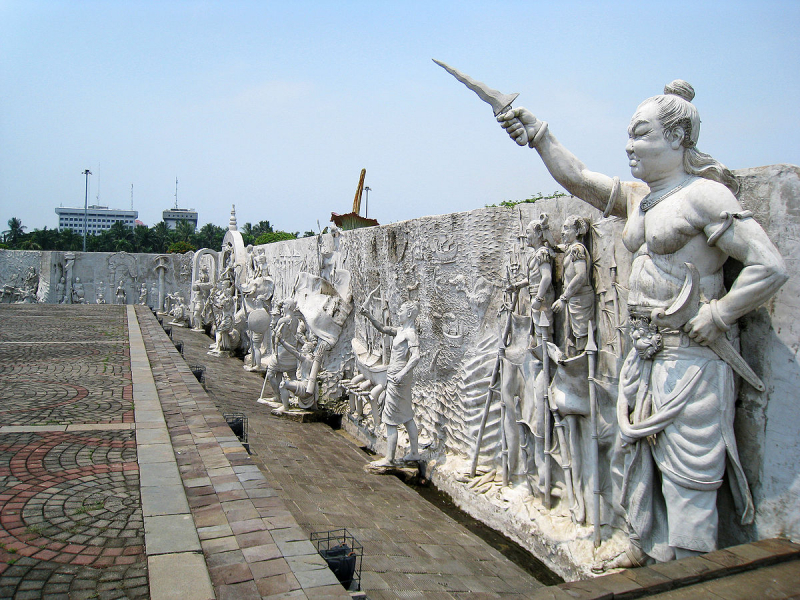
en.wikipedia.org 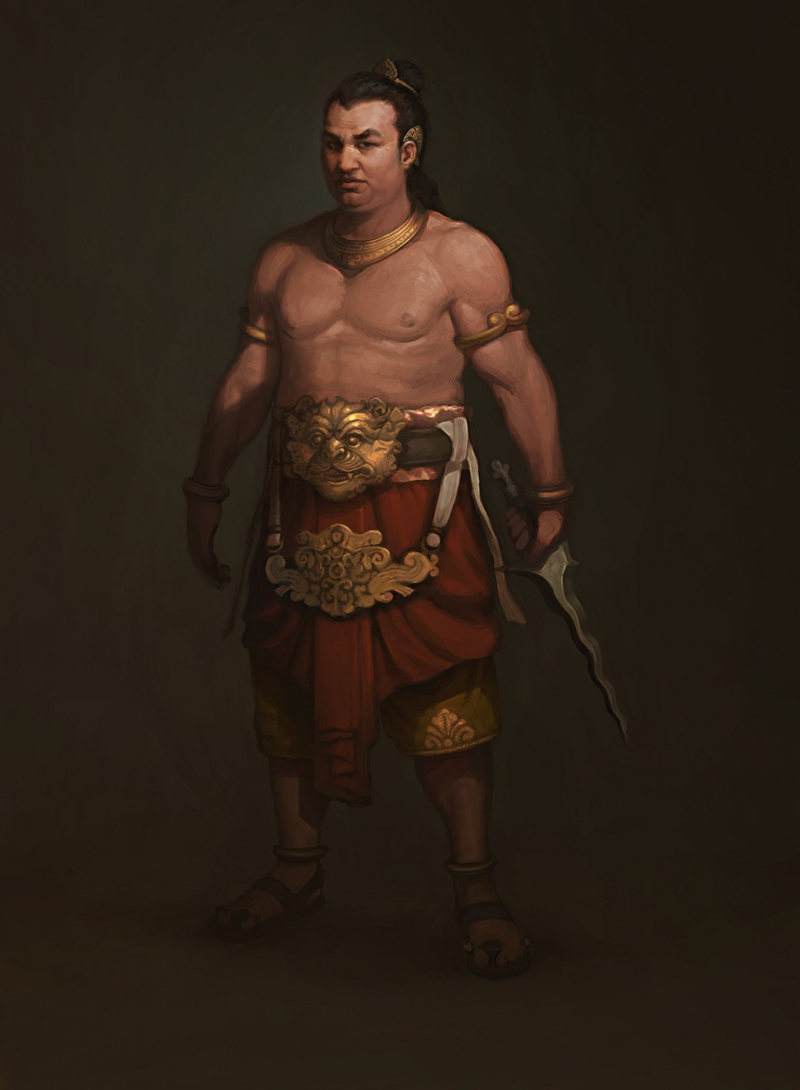
forums.civfanatics.com -
Hayam Wuruk (1334-1389), also known as Rajasanagara, Pa-ta-na-pa-na-wu, or Bhatara Prabhu after 1350, was a Javanese Hindu emperor from the Rajasa Dynasty and the 4th emperor of the Majapahit Empire. Together with his prime minister Gajah Mada, he ruled the empire at its pinnacle. During his reign, the Hindu epics, the Ramayana and the Mahabharata, became ingrained in Javanese culture and worldview via wayang kulit (leather puppets). He is considered one of the most important historical figures in Indonesia. Tribhuwana Wijayatunggadewi preceded him, and his son-in-law Wikramawardhana succeeded him.
Gayatri Rajapatni died in her retirement at a Buddhist monastery in 1350. She was the consort of Raden Wijaya, Majapahit's first king, and the grandmother of Hayam Wuruk. Queen Tribhuwana was forced to abdicate because she ruled Majapahit under Rajapatni's authority and was forced to hand over the throne to her son.
Hayam Wuruk ascended to the throne at the age of 16 in 1350, when the mahapatih (prime minister) Gajah Mada was at the pinnacle of his career. Majapahit expanded its power throughout the Indonesian archipelago of Nusantara under his rule.
According to the Pararaton and Kidung Sunda, King Hayam Wuruk was supposed to marry Dyah Pitaloka Citraresmi, the Sunda Kingdom's princess, in 1357. The purpose of this royal engagement was most likely political, in order to strengthen the alliance between the Majapahit and Sundanese Kingdoms. The Sunda royal family and their guards, on the other hand, were involved in a skirmish with Majapahit troops in the Bubat incident. The planned royal wedding ended in disaster, with the princess and the entire Sunda royal party dying. The court officials blamed Gajah Mada because his intention to demand submission from the Sunda Kingdom resulted in bloodshed. Hayam Wuruk married his half-sister, Paduka Sori, daughter of Dyah Wiyat, several years later. Hayam Wuruk and Paduka Sori were born to the same father but had different mothers.
Mpu Prapanca wrote the kakawin of Nagarakretagama, an old Javanese eulogy for King Hayam Wuruk, in 1365 (1287 Saka year). Hayam Wuruk's royal excursion around the Majapahit realm to visit villages, holy shrines, vassal kingdoms, and territory in East Java was described in the manuscript. From 1370 to 1381, he dispatched ambassadors to China.
Hayam Wuruk and Queen Sori had a daughter, Crown Princess Kusumawardhani. Kusumawardhani married Prince Wikramawardhana, a relative. Hayam Wuruk, on the other hand, had a son, Prince Wirabhumi, from a consort concubine. Following Hayam Wuruk's death in 1389, the empire descended into chaos and decline as Wikramawardhana and Wirabhumi fought for succession. The conflict resulted in Wirabhumi's defeat in the Regreg war. Wikramawardhana took over as King of Majapahit after Hayam Wuruk died.
Birthdate: 1334
Died: 1389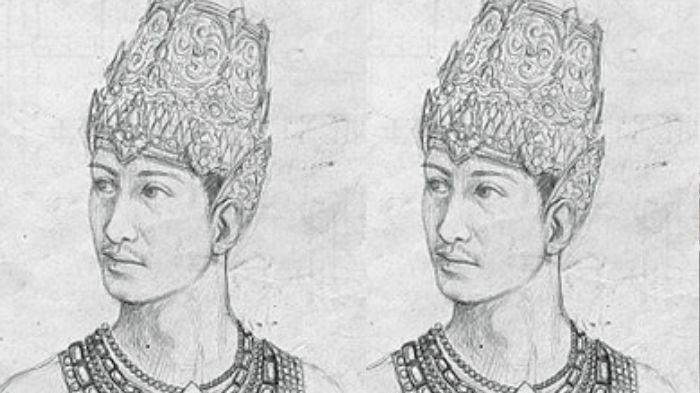
madura.tribunnews.com 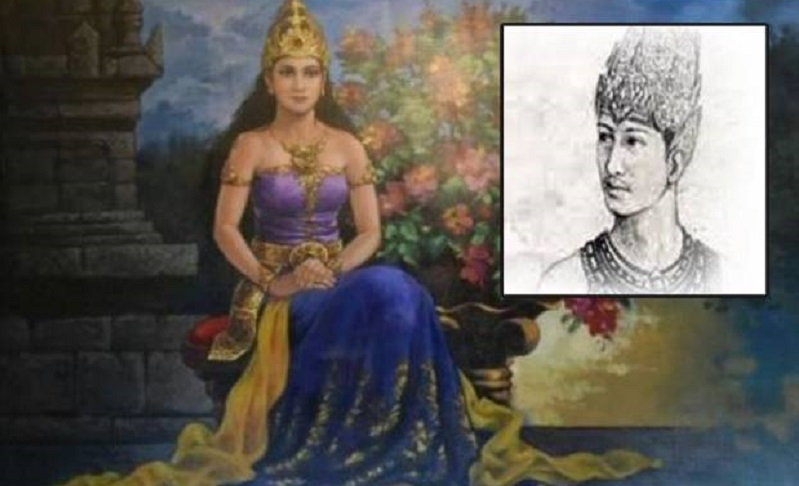
jatim.inews.id -
Jayabhaya or Jayabaya (Javanese spelled Ratu Jayabaya) ruled the Kediri Kingdom in East Java, Indonesia, from 1135 to 1159 CE. Sri Maharaja Sang Mapanji Jayabhaya Sri Warmeswara Madhusudana Awataranindita Suhtrisingha Parakrama Uttunggadewa is the title of the abhiseka. The reign of King Jayabhaya is regarded as the pinnacle of the Kediri Kingdom.
Following the death of his predecessor Airlangga, King Jayabaya is credited with reuniting the Kediri kingdom. King Jayabaya was known for his just and prosperous rule, and he was said to be an incarnation of the Hindu god Vishnu. As Javanese believed in a cyclical history of alternating prosperity epochs of (Jaman Raharja) followed by an era of suffering (Jaman edan), to cycle back to an era of prosperity, King Jayabaya epitomized the archetypal Ratu Adil: the just king reborn in the dark age of suffering "Jaman Edan" (Madness Era) to restore the Jaman Raharja: social justice (Jaman Raharja).
In Pamenang, modern Kediri Regency, Jabaya named his kingdom Widarba, which means "a thousand cities." Records show that his father, Gendrayana the Revolutionary, claimed to be a Pandava descendant as the son of Yudayana: the son of Parikshit: the son of Abhimanyu: the son of Arjuna from the Pandava family. Jayaba's queen consort Dewi Sara wife gave birth to all of his daughters, including Jaya Amijaya, Dewi Pramesti, Dewi Pramuni, and Dewi Sasanti. Jaya Amijaya married Queen consort Astradarma Pramesti Yawastina king and gave birth to Malawapati, King of Anglingdarma.
Jayabaya abdicated in old age and sought a life of meditation as a Hindu recluse, informing a moksha that he was the incarnation of Vishnu, in the village of Menang, in the Pagu sub-district of Kediri Regency, which is still considered a sacred pilgrimage site in the modern era, according to the Kejawen belief system. Sukarno and Suharto both spent time in Menang meditating in order to gain an air of kingly legitimacy, supernatural abilities, Jayabaya's blessings, and/or powers.
Birthdate: 1135
Died: 1159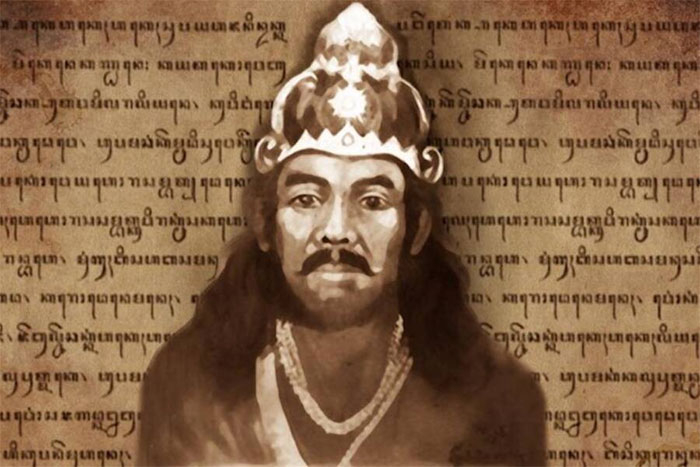
khoahoc.tv 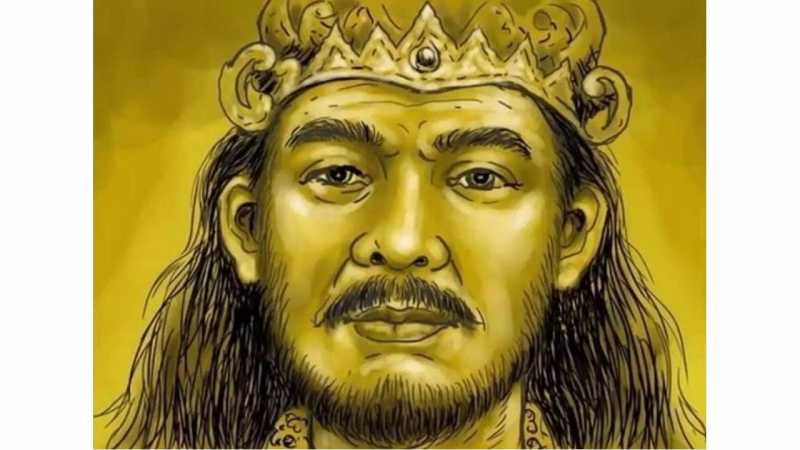
koranmemo.com -
Raden Adjeng Kartini (21 April 1879 - 17 September 1904), also known as Raden Ayu Kartini, was a prominent Indonesian activist who advocated for women's rights and female education. Kartini was concerned not only with women's emancipation, but also with other social justice issues in her society. Kartini saw the struggle for women's freedom, autonomy, and legal equality as part of a larger movement.
Raden Adjeng Kartini was born in the Dutch East Indies to an aristocratic Javanese family (present-day Indonesia). She wanted to continue her education after finishing primary school in Dutch, but Javanese women were not allowed to do so at the time. She met with a number of officials and influential people, including J.H. Abendanon, who was in charge of putting the Dutch Ethical Policy into action.
Her sisters carried on her legacy of educating girls and women after her death. Out of Darkness to Light, Women's Life in the Village, and Letters of a Javanese Princess were published in 1911 as a collection of Kartini's letters in a Dutch magazine. Her birthday is now celebrated as Kartini Day in her honor, with several schools named after her and a fund established in her honor to fund girls' education in Indonesia. She was fascinated by mysticism and was opposed to polygamy.
Birthdate: April 21 1879
Died: September 17 1904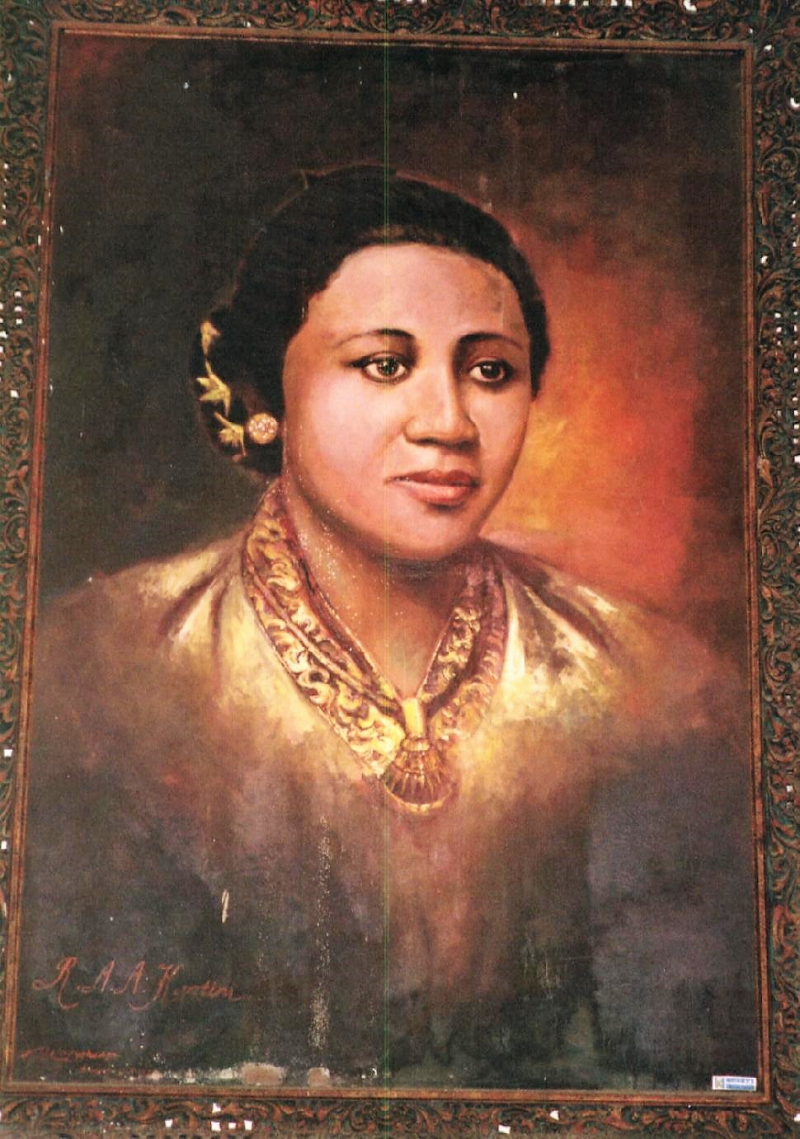
permatahati-global.info 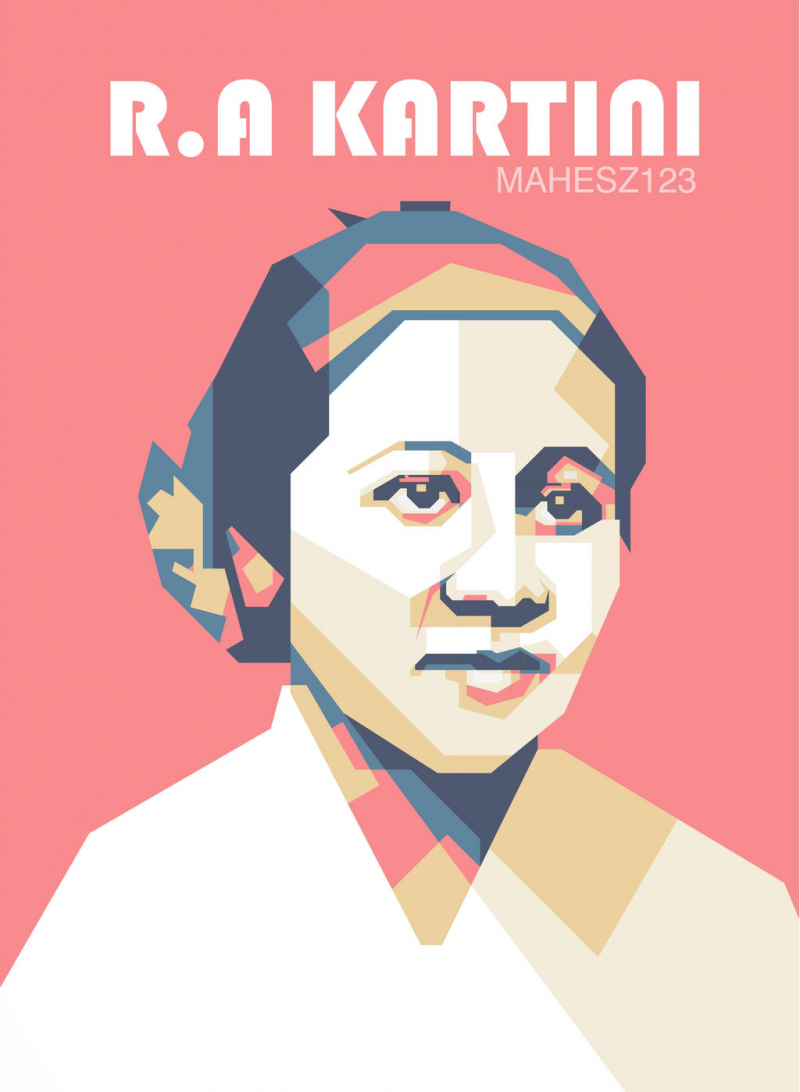
deviantart.com -
Raden Saleh Sjarif Boestaman (1811 - 23 April 1880) was a Javanese politician and a pioneering Arab-Javanese Indonesian Romantic painter. He was regarded as the first "modern" artist from Indonesia (then Dutch East Indies), and his paintings corresponded with the nineteenth-century romanticism popular in Europe at the time. In his work, he also expressed his cultural roots and inventiveness.
Raden Saleh Syarif Bustaman was born in 1811 in the village of Terboyo, near Semarang on the Indonesian island of Java (present-day Indonesia). He was born into a noble Hadhrami family; his father was Sayyid Husen bin Alwi bin Awal bin Yahya, whose family had arrived in Java in the seventeenth century via Surat in India. He was Sayyid Abdullah Bustam's grandson through his mother, Raden Ayu Sarif Husen bin Alwi bin Awal. Raden Saleh was married to the famous religious leader Habib Ali Kwitang through his sister Roqayah.
Saleh became ill unexpectedly on Friday, April 23, 1880. He claimed that one of his servants poisoned him and that he died as a result; however, a post-mortem examination revealed that his circulatory system was disrupted due to a clot near his heart. Saleh was buried two days later in Bogor's Kampung Empang. According to the Javanese Bode newspaper, his funeral was "attended by various landheeren and Dutch officials, and even by curious students from nearby school," on 28 April 1880.
Birthdate: 1811
Died: April 23, 1880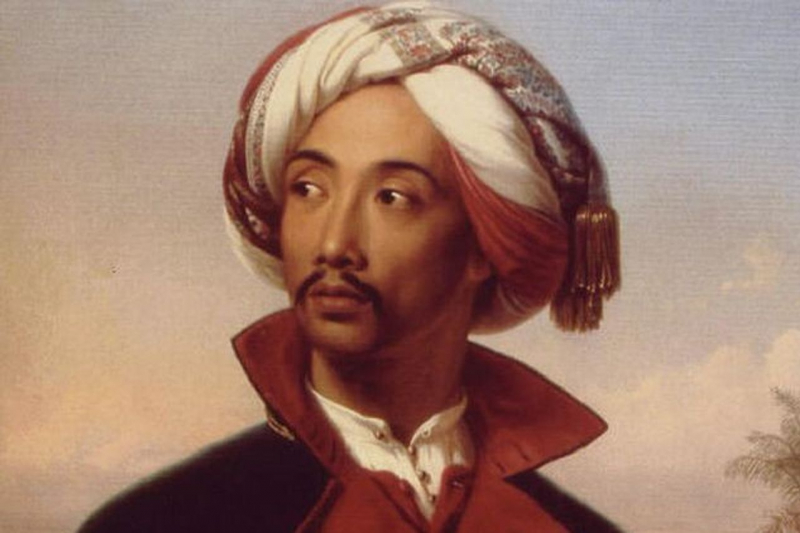
voi.id 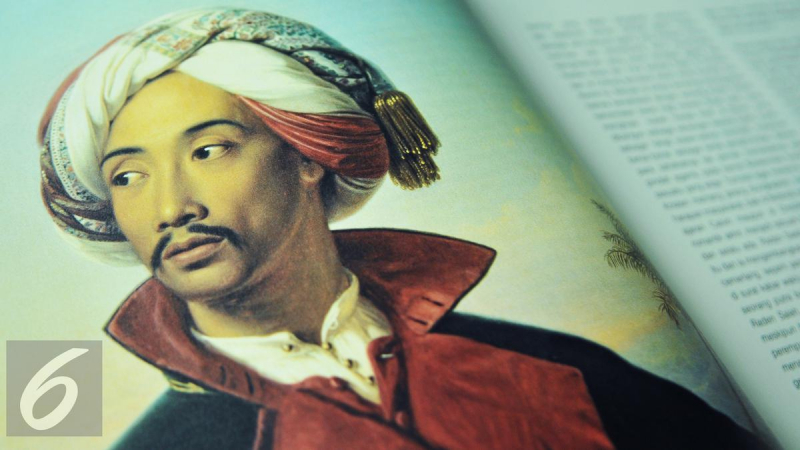
liputan6.com -
Sutan Takdir Alisjahbana was an Indonesian author who lived from 11 February 1908 to 17 July 1994. He was born in the North Sumatra town of Natal. His ancestors were Minangkabau who migrated to Malaysia in the nineteenth century. He founded and edited Poedjangga Baroe. He was a guiding light in Indonesian literature during its formative years, particularly around the time of independence. Sutan Takdir believed that Indonesia could benefit from Western civilization's values and was a staunch supporter of modernism throughout his life. He was working on a novel at the time of his death in 1994, and he was a Renaissance man himself, having written numerous books on a variety of subjects. Layar Terkembang, his famous novel, portrayed him as a progressive author. On July 17, 1994, he died in Jakarta.
Balai Pustaka, which is the state-owned publisher of Indonesia and publisher of major pieces of Indonesian literature, published his first novel- Tak Putus Dirundung Malang (Misfortune Without End), in 1929. STA Poedjangga Baroe (The New Writer), which they founded and edited with Amir Hamzah and Armijn Pane, was first published in 1933 and contained the best work of prewar writers. As a replacement for Poedjangga Baroe, Sutan Takdir Alisjahbana edited Konfrontasi (Confrontation) in 1953.
During the Japanese occupation, he became a secretary of the Komisi Bahasa Indonesia in 1943. (Indonesian Language Commission). He was a professor of Indonesian at National University in Jakarta from 1946 to 1948.
Birthdate: February 11, 1908
Died: July 17, 1994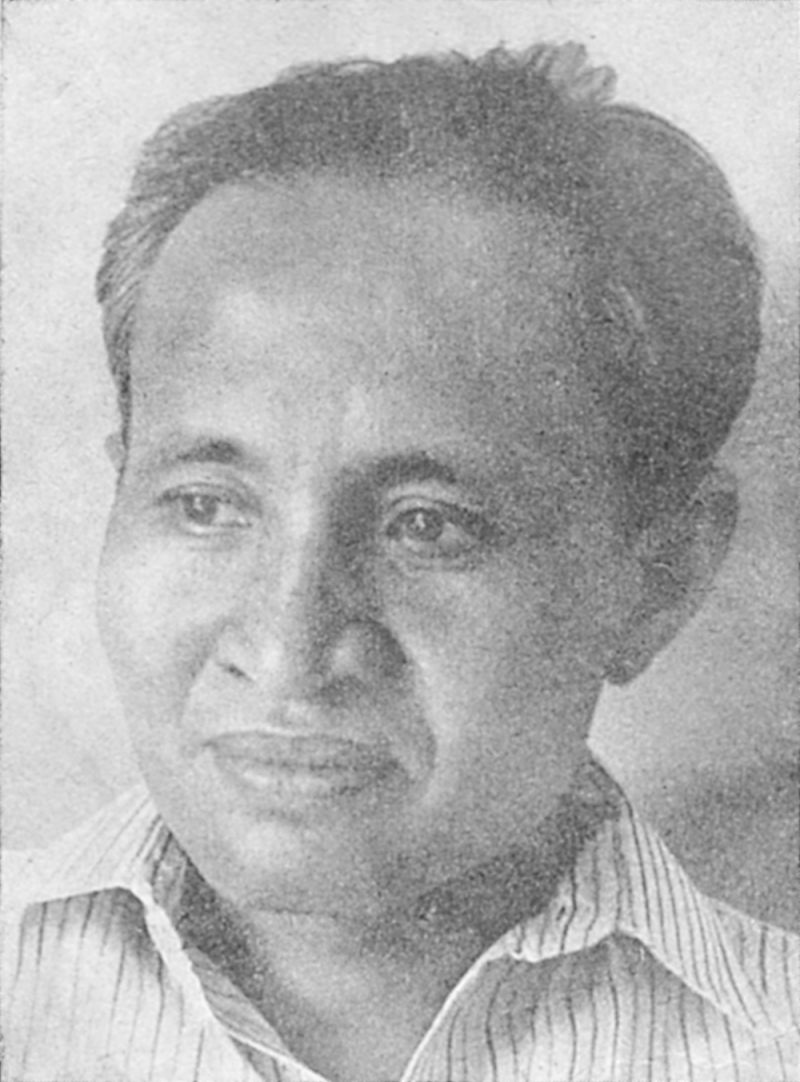
wikidata.org 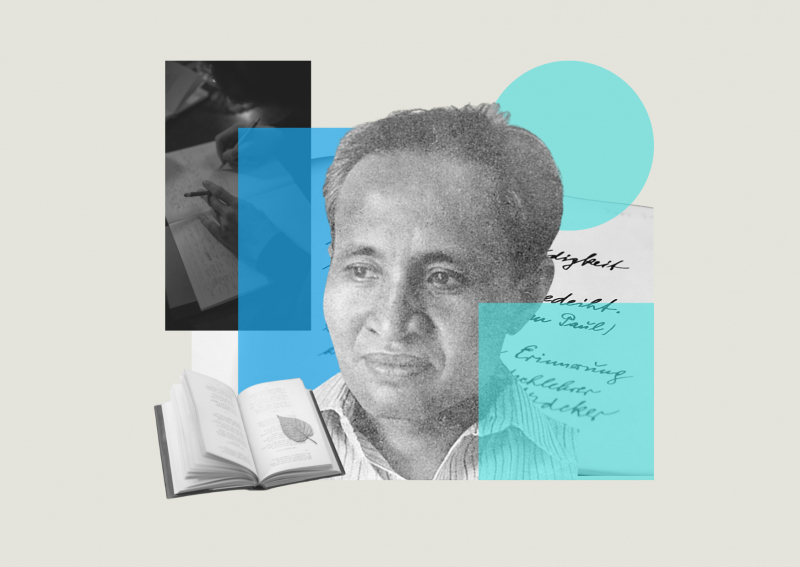
basabasi.co -
Chairil Anwar (July 26, 1922 - April 28, 1949) was an Indonesian poet and member of the "1945 Generation." He is thought to have written 96 works, including 70 poems. He is also among the most important historical figures in Indonesia.
Anwar was born and raised in Medan, North Sumatra, before moving with his mother to Batavia in 1940, where he became involved in local literary circles. Anwar continued to write after publishing his first poem in 1942. His poems, however, were occasionally censored by the Japanese, who occupied Indonesia at the time. Anwar lived a rebellious life and wrote extensively, often about death. He died of an unknown illness in Jakarta.
His work dealt with a variety of topics, such as death, individualism, and existentialism, and was frequently multi-interpretable. Drawing inspiration from foreign poets, Anwar wrote poetry in everyday language and new syntax, which has been credited with aiding the development of the Indonesian language. His poems were frequently constructed irregularly, but with distinct patterns.
Teeuw observes that by 1980, Anwar had received more attention than any other Indonesian writer. He also mentions that many of them were essays written by young writers who were looking for themselves through Anwar's works. Teeuw himself calls Anwar "the perfect poet."
Anwar's Westernized individualism, according to leftist critics, goes against the spirit of the Indonesian National Revolution, which they define as being for the people. The poems of Anwar have been translated into English, French, and Dutch. National Literature Day is observed on the anniversary of his death.
Birthdate: July 26, 1922
Died: April 28, 1949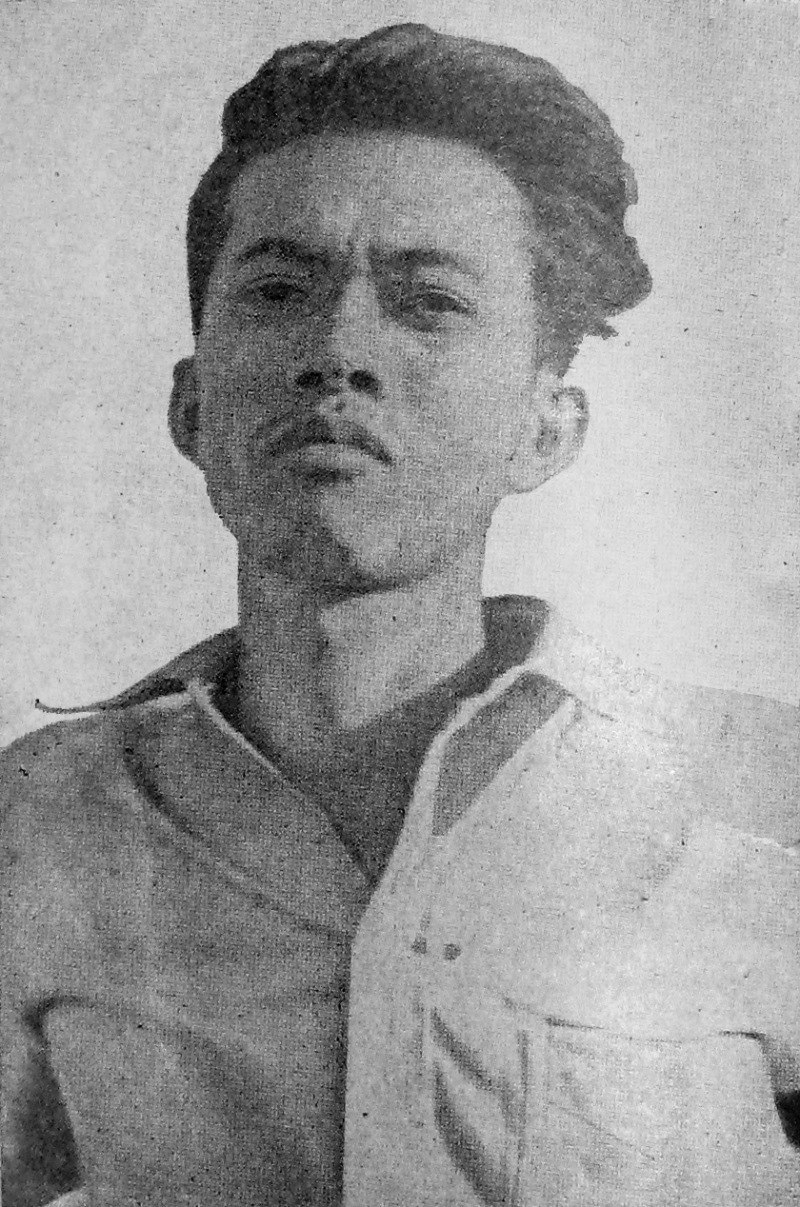
commons.wikimedia.org 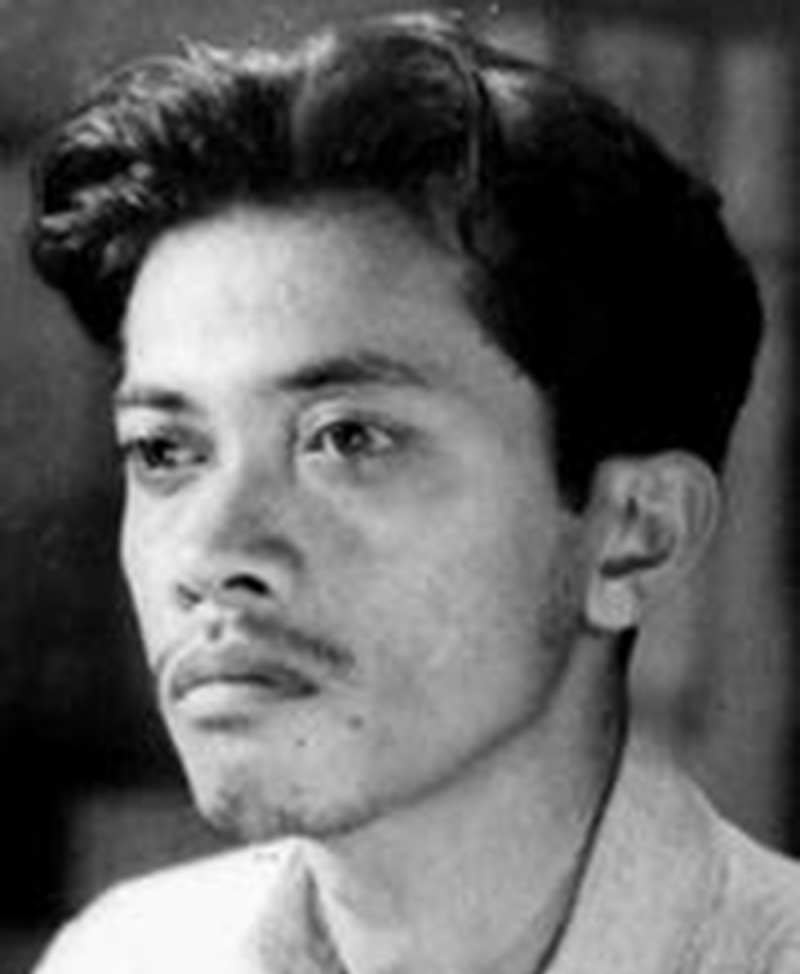
sejarahjakarta.com












